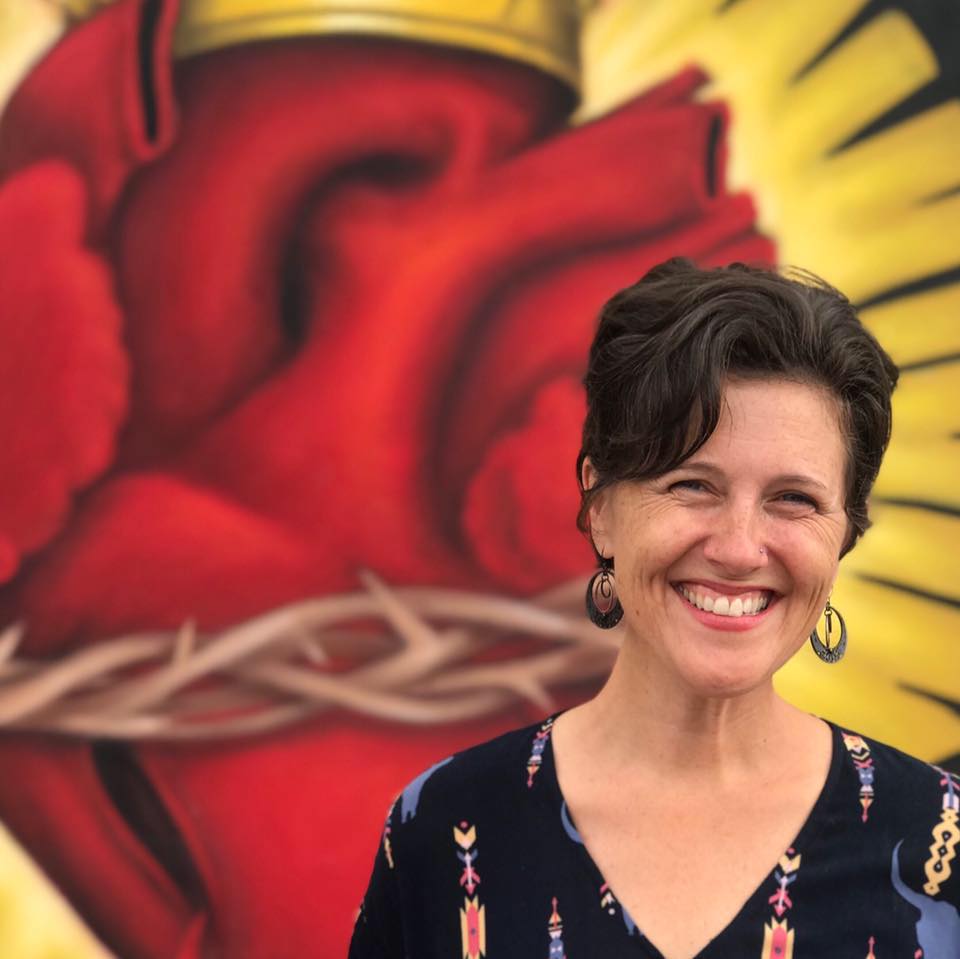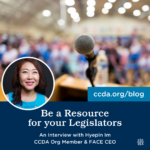
This post is part of our Civic Engagement Series for August Recess.
CCDA member, Amiee Kellogg, shares with us her journey as a practitioner who chose to civically engage and what it has meant for her and her community.
What does civic engagement mean to you?
It means being involved in making change at the grassroots level in ways that move the needle forward incrementally rather than in large gestures. Civic engagement also provides a great way to connect with others regardless of party affiliation or viewpoints.
How does your faith inspire you to be civically engaged?
I am a strong believer in stewarding what has been so graciously given to us in all aspects. It’s all connected. My faith compels me to engage from a level of stewardship that comes with being a part of humanity and also to follow convictions that have been placed in my spirit.
What were your first steps in civic engagement as a CCD practitioner?
I was involved before getting linked with CCD but my first experience with them was being invited to talk with the staffer of a Senator about topics that were linked to human rights. I was specifically able to present concerns about a voting bill that is very problematic when it comes to access for the disability community.
What was your experience like in civic engagement? How did it affect you and your faith?
Most of my experience has been volunteering with campaigns, working elections, advocating at the legislative level and registering people to vote. It is a great experience and anyone can get involved. It strengthens my faith because I feel like I am engaging in a higher good for all around me as well as using my gifting in the public sector. I also feel it’s close to God’s heart when we give voice to issues that matter to those who are disenfranchised and possibly left out from having a seat at the table.
What are a few pieces of advice you’d give to someone starting out on their civic engagement journey?
Ask questions and join with groups like the CCDA who can help provide outlets for engagement. I would also recommend doing one thing at a time as to not burn out while trying to get involved. Becoming deputized to register people to vote is a great start. People can also use their local political affiliate offices to learn more about advocacy work in their local and statewide elections.
As advocates for the marginalized, we are committed to doing our best to bring what we know to these critical spaces. We do this because we know that advocacy works. Sharing your community’s story can change attitudes, opinions, behaviors, and even policy and funding decisions. That is why we speak up and out about what we and our communities are experiencing.

About Amiee Kellogg

As the current Workforce Coordinator for an Austin non-profit, Amiee creates and facilitates pre-employment training programs for adults with Autism designed to help with the navigation of the employment journey. Amiee also collaborates for the creation and launch of neurodiverse-friendly business initiatives to improve inclusive hiring practices at the organization level. Her Master’s degree is in special education, which she has applied through 7 years in public secondary schools supervising a program designed for students on the autism spectrum. She has also served as an 18+ program lead, and a campus-based vocational adjustment coordinator. Before going into education, she worked in community mental health as a mobile crisis outreach specialist, a behavioral health case manager, and a crisis hotline QMHP.



